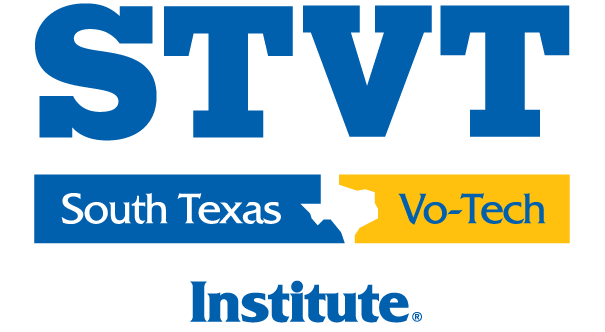Medical assistants can be broken down into two main categories: administrative medical assistants and clinical medical assistants.
Administrative medical assistants specialize in and perform administrative tasks in healthcare facilities. On the other hand, clinical medical assistants specialize in clinical work, and assist healthcare providers with procedures.
They may take vitals, prep patients for exams, collect and process lab specimens, and administer meds under the supervision of healthcare providers.
Clinical medical assistants often get specialized training in clinical procedures, but may also have some knowledge and training in administrative tasks.
What Is a Clinical Medical Assistant?
Clinical medical assistants are healthcare professionals who help physicians or other licensed healthcare providers deliver quality patient care. They often prepare patients and set their expectations for what will happen during their appointment so they’re not surprised. They take vitals – blood pressure, heart rate, temperature, and respiratory rate – to assess and monitor patients overall health. They also clarify physician instructions and create a supportive environment to help patients make informed decisions about their healthcare and advocate for themselves.
Clinical medical assistants use their administrative and clinical knowledge to help keep medical facilities like hospitals, physician’s offices, outpatient clinics, and urgent care centers running as efficiently as possible.
What Does a Clinical Medical Assistant Do?
The duties of clinical medical assistants vary depending on where they work, but some common tasks include:
Taking Patient Histories and Vitals
Clinical medical assistants get medical info by taking patient histories, including symptoms, medical conditions and medications. They also take a patient’s vital signs such as blood pressure, heart rate, temperature, and respiratory rate to assess and monitor a patient’s health.
Assisting with Exams and Minor Procedures
Clinical medical assistants can assist healthcare providers during exams and minor procedures. This may include gathering lab samples, prepping patients for x-rays, cleaning wounds, changing dressings, removing stitches, and other tasks to keep patients comfortable and safe.
Cleaning and Prepping Exam Rooms
Clinical medical assistants may clean exam rooms before and after each patient to keep the environment safe and clean. They also restock supplies and equipment for the next patient so each appointment can proceed with few interruptions.
Scheduling and Patient Records
Clinical medical assistants do administrative tasks such as scheduling patient appointments and maintaining patient records and medical documentation.
Keep in mind that the duties of clinical medical assistants may vary depending on the medical facility and state laws. As versatile healthcare professionals, they adjust to the needs of their work environment and help keep medical facilities running.
What Skills Do Clinical Medical Assistants Have?
Clinical medical assistants have a range of skills to be successful in their job. They combine interpersonal, administrative, and clinical skills to support healthcare.
Interpersonal Skills
Clinical medical assistants use strong verbal and written communication skills to interact with patients, doctors and other healthcare providers. They must be able to explain procedures and treatments clearly, listen to patient concerns, and show empathy and compassion. Since they work in a team environment, they should be able to work well with others while juggling multiple tasks.
They should also be able to help prioritize tasks and adjust to changing physician and patient needs to help appointments wrap up in a timely manner.
Administrative Skills
Besides their clinical duties, clinical medical assistants can also do administrative tasks. They may schedule patient appointments, update patient records, assist with medical coding, or process insurance claims. This requires knowledge of office software, anatomy, physiology, pharmacology, and various insurance policy guidelines. Using their administrative skills, clinical medical assistants help keep patient flow steady, make sure physicians get paid for services rendered, and help improve a patient’s overall experience.
Clinical Skills
Clinical medical assistants have the clinical skillset to perform various procedures and tasks under the supervision of healthcare providers. For example, they may use phlebotomy techniques to draw blood for diagnostic testing. Clinical medical assistants should be able to safely collect and handle biospecimens like blood, urine, and tissue samples to minimize the risk of infection transmission and ensure test results are reliable and accurate.
In states like Texas, medical assistants are also allowed to give IVs under the supervision of a licensed medical professional. These clinical skills contribute to better patient outcomes and are part of the healthcare process.
How To Become a Clinical Medical Assistant in Texas
To become a clinical medical assistant in Texas, individuals typically complete a Medical Clinical Assistant program. Depending on the school and award type, these programs can be completed in about one to two years. Courses in these programs focus on teaching students anatomy, pharmacology, and medical terminology. They also incorporate hands-on training to help students practice drawing blood, taking vital signs, filling out claim forms, and more.
While Texas doesn’t require medical assistants to be certified before they can start working, some clinical medical assistants may choose to get certified to add to their credentials, prove their expertise, and increase their profile. Certification can also be a stepping stone for specialization in a particular area of medical assisting in the future.
What Is the Job Outlook for Medical Assistants?
The national job outlook for medical assistants is projected to grow rapidly between 2023 and 2033. Should these projections hold, roughly 118,000 jobs will be available nationwide for the next few years. With Texas having the second highest employment rate for medical assistants, there may be ample employment opportunities for medical assistants regardless of specialty.
Start Training for Your Healthcare Career at STVT®
Clinical medical assistants bring a unique blend of administrative and clinical skills to their work. If you’re passionate about patient care and eager to work in a fast-paced medical environment, now is the perfect time to take the next step. STVT’s Medical Clinical Assistant program teaches you the hands-on skills and knowledge needed to prepare for this rewarding field.
Call us at 866-480-9766 today or submit this form to get started.
Disclaimer: Information within this blog is for general information purposes only. STVT does not assume or guarantee certification/licensures, specific job/career positions, income earning potential, or salary expectations based on the programs offered at STVT. Career and program information statements in this blog do not guarantee that programs or other information mentioned are offered at STVT.



